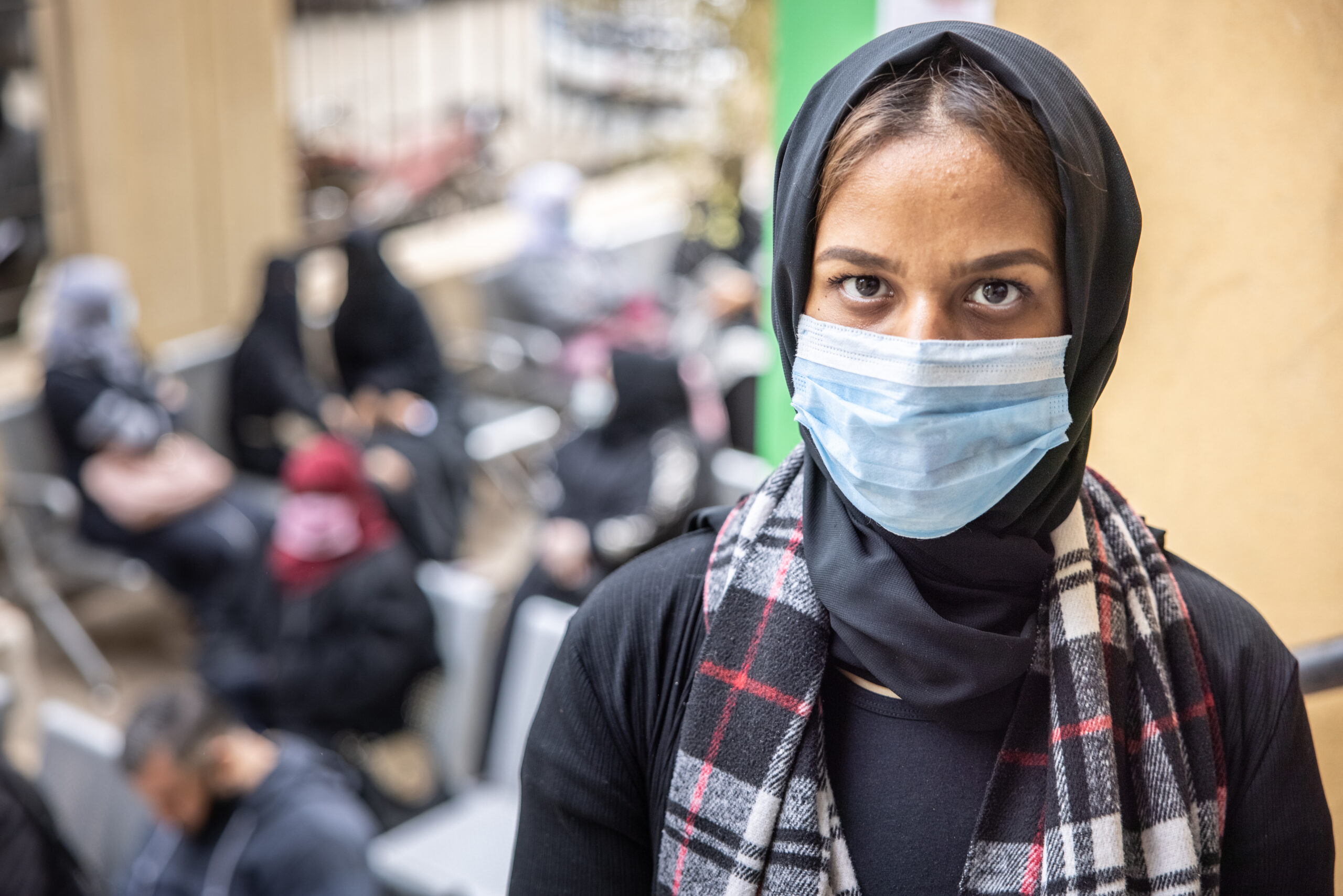Most of refugees were already vulnerable before the outbreak of COVID-19 and the pandemic further impacted their living situation.

Faiza, an Eritrean refugee, waiting outside the post office to receive her cash assistance from UNHCR. © UNHCR/Pedro Costa Gomes.
© Faiza is an Eritrean refugee who benefits from UNHCR cash assistance.
“We didn’t know where to go, we were only sure that we needed to escape with our lives and find protection on any soil”. This is Faiza speaking, a 24-year-old Eritrean refugee who came to Egypt with her family in 2017.
Faiza is a spirited young lady with eyes that project self-confidence and happiness despite the dire conditions she endured.
Faiza never dreamt of chasing the bright city lights, she was happy in her humble house in her home country. But her family was oppressed and discriminated against in Eritrea, forcing them to leave behind all their memories and take a journey into the unknown.
Faiza knew she would not have the chance to return home in the near future. That realisation has left an indelible scar on her heart. Her father, an elderly man who suffers from different medical conditions, cannot work. Her brother has been desperately looking for a job since they arrived in Egypt but his search has so far been in vain.
Faiza became the breadwinner of the family and started working in a library, until coronavirus that is. In the wake of the COVID-19 pandemic, the library faced financial problems and had to close its doors, leaving Faiza jobless.
“I no longer have a job and my family is struggling,” says Faiza with a disappointed smile. “The money I receive from UNHCR is now helping our family to pay the rent and buy food. All I wish is to return to work and be able to enjoy a day outside of the house,” she explains after imagining post-pandemic times.
As of December 2020, more than 259,000 refugees and asylum seekers from 58 different countries are registered with UNHCR, the UN Refugee Agency, in Egypt. Most of them were already very vulnerable before the outbreak of COVID-19. The pandemic further impacted their living situation. Many lost their source of income which enabled them to buy basic necessities and pay the rent.
UNHCR provides the most vulnerable refugees, including Faiza and her family, with monthly cash assistance and in some instances also ‘winter grants’. The situation of refugees and asylum-seekers has worsened in recent years, with many increasingly struggling to get by. European Union humanitarian funding to UNHCR Egypt is helping to sustain a cash programme, with grants that help those most in need put a roof over their heads and food on the table.
Share on Facebook Share on Twitter